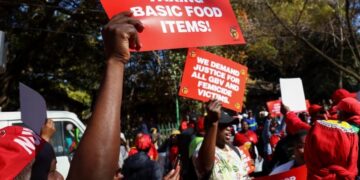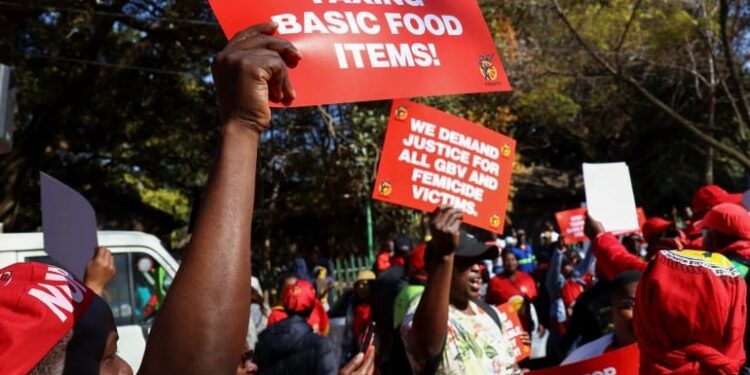By Enyichukwu Enemanna
Hundreds of South African demonstrators drawn from labour unions on Wednesday staged a peaceful protests in the executive and legislative capitals of Pretoria and Cape Town, decrying the unmitigated inflation in the country that has in the past 13 years remained very high.
The demonstrators were led by the trade union group Congress of South African Trade Unions (COSATU), a longtime ally of the governing African National Congress.
Mining sector and others are usually affected during labour disputes in South Africa, even though it is rare for COSATU, South Africa’s biggest union, to lead a national protest.
Union officials said more protesters were expected to join the marches as the day progressed, though it was not immediately clear if a call for a national shutdown to take place in more than 10 major cities would be successful.
The Department of Public Service and Administration said in a circular to government departments that state employees participating in the COSATU-led protests, which were supported by unions from other federations, would not be paid.
Protesters displayed placards saying “Stop Taxing Basic Food Items” sang as they marched through central Pretoria towards Union Buildings, which houses the office of President Cyril Ramaphosa, a founding COSATU member.
In Cape Town, they marched towards Parliament. Some complained that frequent power cuts by state power utility Eskom have hurt businesses.
“At the moment, I’m not coping because there is no work and at my age, I’m struggling,” said Helen Pont, 65, a former hotel receptionist, who was among protesters in Pretoria.
South Africa’s headline consumer inflation rose to an annual 7.8 percent in July, its highest level since 2009.
Last month, the central bank delivered its biggest interest rate rise in 20 years to try to curb inflation, despite four previous increases.
Fuel prices were up 45.3 percent in June, their largest annual increase since the agency’s consumer price index series began in 2009.
In October 2020, COSATU led a national protest to criticise the government’s response to the COVID-19 pandemic, in which jobs were lost during lockdowns.



































